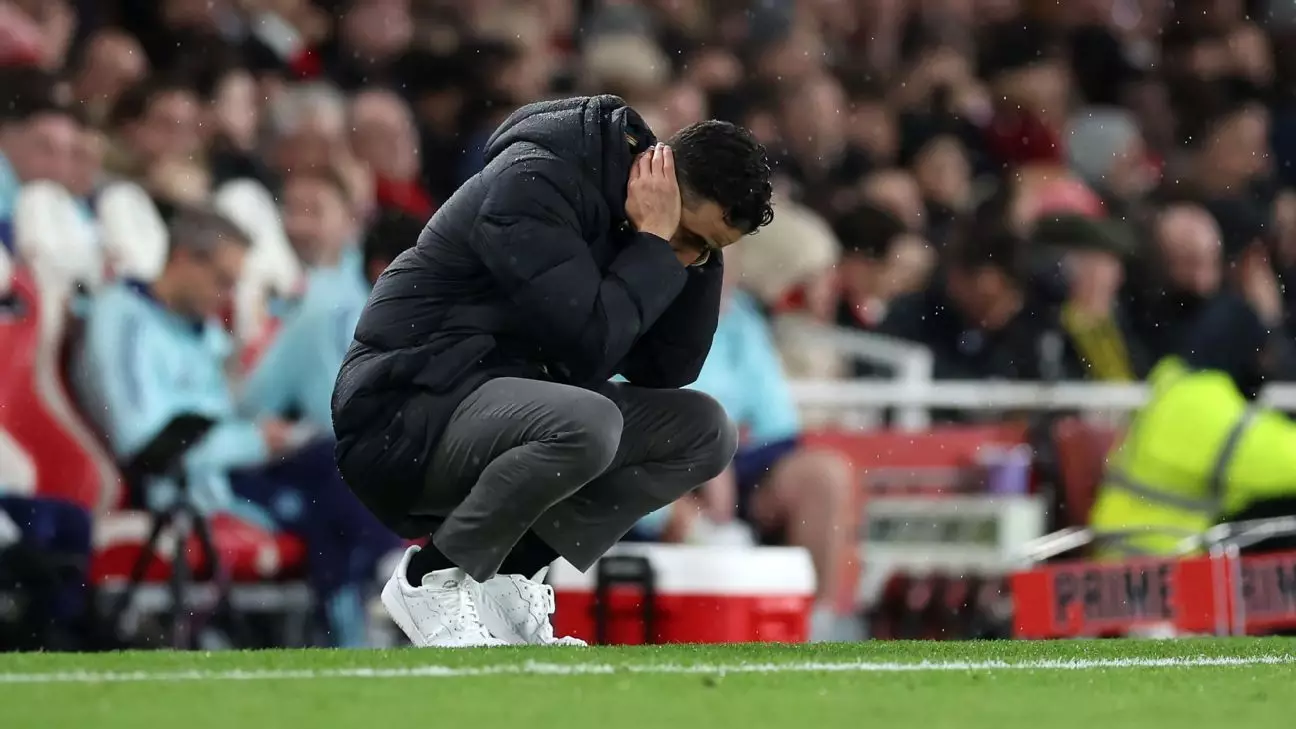Ruben Amorim, the recently appointed head coach of Manchester United, has found himself facing the harsh realities of managing a top-tier English football club. Following a disappointing 2-0 defeat to Arsenal, Amorim has begun the difficult task of managing not just the team’s performance, but the expectations surrounding them. This loss marked his first setback in a coaching role that has already been filled with scrutiny, given the intense expectations that come with the Manchester United name. As he reflects on the defeat, Amorim recognizes the weight of his position, asserting, “We have to manage expectations,” a statement that underscores the pressures of the Premier League.
United’s loss to Arsenal was characterized by missed opportunities and unforced errors that ultimately led to an uphill battle. Amorim acknowledged the match as a “bad result,” yet he refrained from expressing shock, indicating an understanding of the strength of Arsenal, a team that has shown resilience and ambition in recent seasons. This nuanced perspective is vital for Amorim, as he must balance the urgency for immediate improvement with the understanding that transformation takes time. His approach seems focused on fostering a consistent culture, one that can weather the storm of fluctuating performances.
As Manchester United look ahead, they face a packed schedule consisting of critical matches. Hosting Nottingham Forest represents an opportunity for Amorim to guide his team back on track before a crucial Europa League encounter against Viktoria Plzen. The weight of the situation grows heavier, as he will also contend with his first Manchester derby against Pep Guardiola’s City. These forthcoming matches could be pivotal, not only for team morale but for Amorim’s credibility as a leader. A string of successful results could rapidly shift the narrative surrounding his tenure, reaffirming his capability and potential to bring United back to its former glory.
Changes to the squad have already begun under Amorim’s watch, as evidenced by his decision to bench stars like Marcus Rashford and Amad Diallo following their standout performance against Everton. This strategy suggests a deeper approach to team selection where performance consistency, player fatigue, and tactical adaptability become critical. Amorim’s reference to managing player loads highlights the physical toll that such a competitive league imposes on athletes. He is seeking to establish a balanced squad that can adapt to the rigors of consecutive matches, with particular emphasis on monitoring players like Bruno Fernandes, whose fatigue could hinder performance.
Building Towards Success
Ultimately, Ruben Amorim’s journey as Manchester United’s head coach is just beginning. His experiences thus far reveal a coach who is not only aware of the demands of the Premier League but one who is also committed to building a resilient and competitive team. He understands that while results may define immediate perceptions, the overarching goal is to foster a culture of stability and growth. For Amorim, navigating the pressures of high expectations will be a continuous challenge, but it is one he appears willing to tackle, focusing on consistency and gradual improvement. The road ahead may be rocky, but with determination and strategic foresight, the potential for success remains within reach.

Leave a Reply